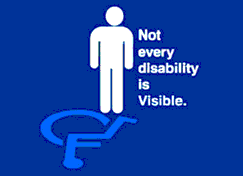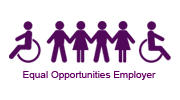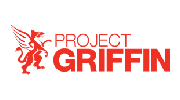 In an ideal world, security staff would only follow instructions and act in a suitable way relying on appropriate training. However, in the real world, they need to use their own judgement, as there are often situations that come out of the patterns explained in trainings.
In an ideal world, security staff would only follow instructions and act in a suitable way relying on appropriate training. However, in the real world, they need to use their own judgement, as there are often situations that come out of the patterns explained in trainings.
One of the most important areas that security staff should evaluate right falls under The Equality Act 2010, which makes unlawful for a service provider to discriminate against a disabled person. The law recognises the particular disadvantages that disabled people face, so treating disabled people more favourably than others is permitted (positive discrimination).
The difficulty arises when the security person needs to discern between a genuine disable person and a deceiving one.
Firstly, sometimes a disability is not that obvious and could be mistaken with drunkenness and an inexperienced security person might take inappropriate decisions against that person. This will legally amount to direct discrimination. Such type of mistake could be avoided by using the right communication and customer skills.
Secondly, a person could tell to the security staff about their disability, asking particular advantages (e.g. allowing a dog on the premises, allowing wearing a hat when the venue policy states otherwise, etc.). But should the security person rely on a person’s statement that is disabled? Obviously, their duty is to enquire, check and decide. However, by asking too many questions, a person can perceive this as hostile and offensive. This will legally amount to harassment.
There are times where a security staff would be able to take the right decision. For example, despite a person’s statement that his dog is an assistance dog, the security staff will not permit the dog to be on the premises if not wearing the identifying coat or harness. Every assistance dog user will carry an ID book giving information about the assistance dog and training organisation together with other useful information.
There are other times where a decision is difficult, for example assessing if a person has real reason for refusing to take their hat off, when there is such venue policy in place. Asking the venue manager’s advice in this matter would be the most adequate response.
The venue manager will have the responsibility to avoid that those with a disability be put at a disadvantage.
When a person, whether disabled or not, is treated less favourably because they have made a complaint about discrimination, or assisted someone else to make a complaint about discrimination (witness), this will legally amount to victimisation.
Therefore, the only way to avoid discrimination (direct discrimination, harassment, victimisation or other forms) is high level customer service. Bad customer service is and has been a serious problem for any organisation, hence the importance of a training program to help avoid these problems by understanding discrimination and helping the leaders develop workable solutions.



